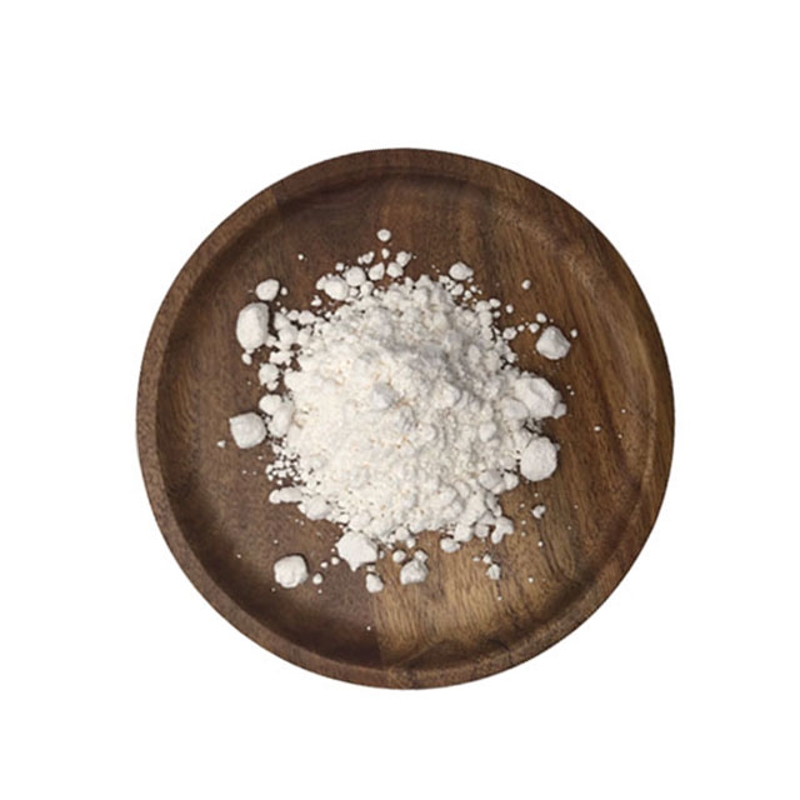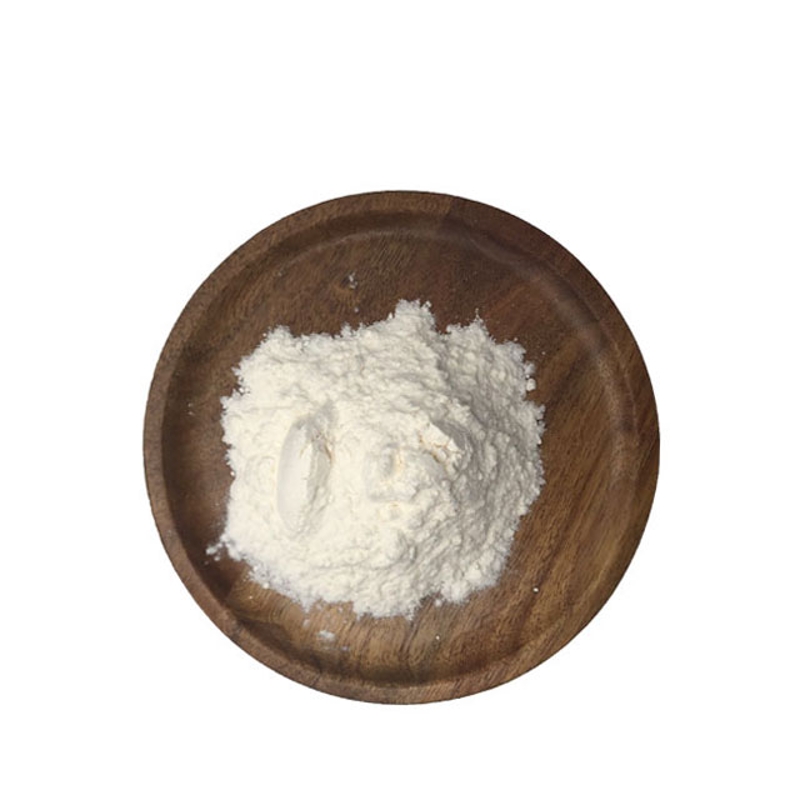-
Categories
-
Pharmaceutical Intermediates
-
Active Pharmaceutical Ingredients
-
Food Additives
- Industrial Coatings
- Agrochemicals
- Dyes and Pigments
- Surfactant
- Flavors and Fragrances
- Chemical Reagents
- Catalyst and Auxiliary
- Natural Products
- Inorganic Chemistry
-
Organic Chemistry
-
Biochemical Engineering
- Analytical Chemistry
- Cosmetic Ingredient
-
Pharmaceutical Intermediates
Promotion
ECHEMI Mall
Wholesale
Weekly Price
Exhibition
News
-
Trade Service
Fabian Frontzek, Germany, conducted a study to evaluate the use of high-dose chemotherapy + rituximab + autologous hematopoietic stem cell transplantation (ASCT) (R-MegaCHOEP protocol) in the first-line treatment of patients with high-risk aggressive B-cell lymphoma aged 18-60 ) The efficacy and safety of conventional chemotherapy + rituximab (R-CHOEP-14 regimen).
The results of the 3-year study showed that high-dose treatment had no survival advantage and obvious toxicity.
The results of the R-CHOEP-14 program are very encouraging, with a 3-year event-free survival (EFS) rate of 70% (95% CI: 61–78) and a 3-year overall survival (OS) rate of 85% (95% CI) : 78–91).
Recently, the 10-year follow-up results of the study were published on The Lancet Haematology.
The editor has compiled its main contents as follows for the reference of readers.
Research method The study is a randomized, open-label phase 3 study conducted in 61 centers in Germany, aged 18-60, newly diagnosed, aggressive, high-risk (age-adjusted IPI score of 2 or 3), CD20 positive Patients with B-cell lymphoma and the Eastern Cooperative Oncology Group’s performance status score (ECOG PS) of 0-3 are eligible for inclusion.
Using the Pocock minimization algorithm, patients were randomly assigned (1:1) to receive 8 cycles of conventional chemotherapy + rituximab (R-CHOEP-14), or 4 cycles of escalating high-dose chemotherapy + rituximab Monoclonal antibody + ASCT (R-MegaCHOEP) treatment.
The conventional chemotherapy regimen in the R-CHOEP-14 regimen includes: intravenous injection of cyclophosphamide 750mg/m², adriamycin 50mg/m² and vincristine 2mg on day 1, and intravenous injection of etoposide 100mg/m² on day 1-3.
100 mg of prednisolone was injected intravenously on day 1-5.In the MegaCHOEP regimen, the dose-escalation high-dose chemotherapy regimen includes: doxorubicin: 70mg/m² for all 4 cycles; cyclophosphamide: 1500mg/m² for the first cycle, 4500mg/m² for the second and third cycles, and 6000mg/m² for the fourth cycle; Etoposide: 600mg/m² in the first cycle, 960mg/m² in the second and third cycles, and 1480mg/m² in the fourth cycle.
Both groups of patients received 6 intravenous injections of rituximab at 375 mg/m².
The primary study endpoint is EFS.
Secondary research endpoints include safety, progress during treatment, progression-free survival (PFS), OS, OS after treatment failure, time to recurrence, time to different causes of death, and time to occurrence of secondary tumors.
Results of the study: Between March 3, 2003 and April 7, 2009, 275 patients were randomly assigned to the R-CHOEP-14 group (n=136) or R-MegaCHOEP group (n=139).
130 patients in the R-CHOEP-14 group and 132 patients in the R-MegaCHOEP group were included in the intention-to-treat (ITT) population.
After a median follow-up of 9.
3 years (range: 5.
1-11.
1 years), the 10-year EFS rates of patients in the R-MegaCHOEP group and R-CHOEP-14 group were 51% (95% CI: 42-61) and 57% (95% CI: 42-61), respectively.
%CI: 47-67) (log-rank p=0.
21; adjusted hazard ratio [HR]: 1.
3 [95%CI: 0.
9-1.
8], p=0.
23; Figure 1A).
The 10-year PFS rates of patients in the R-MegaCHOEP group and R-CHOEP-14 group were 59% (95% CI: 50-68) and 60% (95% CI: 51-70) (log-rank p=0.
60; Adjusted HR: 1.
1 [0.
7-1.
7], p=0·64; Figure 1B). The 10-year OS rates of patients in the R-MegaCHOEP group and R-CHOEP-14 group were 66% (95% CI: 57–76%) and 72% (95% CI: 63–81) (log-rank p=0.
25) ; Adjusted HR: 1.
3 [0.
8-2.
1], p=0.
26; Figure 1C).
Figure 164/262 patients (24%; R-CHOEP-14 group 33/130 patients [25%]; R-MegaCHOEP group 31/132 patients [23%]) treatment failed, the median OS of these patients was 12 Month (95% CI: 0-28), there was no significant difference between the treatment groups.
30/190 patients (16%[95%CI: 11-22]) relapsed in complete remission or complete remission to be confirmed; 17/100 patients (17%) in R-CHOEP-14 group, R-MegaCHOEP group There are 13/90 patients (14%).
The median OS of patients with relapsed disease was 41 months (95% CI: 7–75).
The median time to relapse was 22 months (range: 12–48 months).
In the intention-to-treat population, 22 patients developed secondary malignancies; there were 12/127 patients (9%) in the R-CHOEP-14 group, and 10/126 patients (8%) in the R-MegaCHOEP group (Table 1 ).
Table 1 Research conclusions This research report is the first 10-year follow-up result for the treatment of young and aggressive B-cell lymphoma patients in a phase 3 clinical trial.
After 10 years of follow-up, the EFS rate, PFS rate and OS rate of the two groups were similar, confirming that high-dose chemotherapy + ASCT could not improve the prognosis.
Reference source: Fabian Frontzek, Marita Ziepert, Maike Nickelsen, et al.
Rituximab plus high-dose chemotherapy (MegaCHOEP) or conventional chemotherapy (CHOEP-14) in young, high-risk patients with aggressive B-cell lymphoma: 10-year follow -up of a randomised, open-label, phase 3 trial.
The Lancet Haematology Published: March 02, 2021.
DOI: https://doi.
org/10.
1016/S2352-3026(21)00022-3.
Stamp" read the original text "We make progress together
The results of the 3-year study showed that high-dose treatment had no survival advantage and obvious toxicity.
The results of the R-CHOEP-14 program are very encouraging, with a 3-year event-free survival (EFS) rate of 70% (95% CI: 61–78) and a 3-year overall survival (OS) rate of 85% (95% CI) : 78–91).
Recently, the 10-year follow-up results of the study were published on The Lancet Haematology.
The editor has compiled its main contents as follows for the reference of readers.
Research method The study is a randomized, open-label phase 3 study conducted in 61 centers in Germany, aged 18-60, newly diagnosed, aggressive, high-risk (age-adjusted IPI score of 2 or 3), CD20 positive Patients with B-cell lymphoma and the Eastern Cooperative Oncology Group’s performance status score (ECOG PS) of 0-3 are eligible for inclusion.
Using the Pocock minimization algorithm, patients were randomly assigned (1:1) to receive 8 cycles of conventional chemotherapy + rituximab (R-CHOEP-14), or 4 cycles of escalating high-dose chemotherapy + rituximab Monoclonal antibody + ASCT (R-MegaCHOEP) treatment.
The conventional chemotherapy regimen in the R-CHOEP-14 regimen includes: intravenous injection of cyclophosphamide 750mg/m², adriamycin 50mg/m² and vincristine 2mg on day 1, and intravenous injection of etoposide 100mg/m² on day 1-3.
100 mg of prednisolone was injected intravenously on day 1-5.In the MegaCHOEP regimen, the dose-escalation high-dose chemotherapy regimen includes: doxorubicin: 70mg/m² for all 4 cycles; cyclophosphamide: 1500mg/m² for the first cycle, 4500mg/m² for the second and third cycles, and 6000mg/m² for the fourth cycle; Etoposide: 600mg/m² in the first cycle, 960mg/m² in the second and third cycles, and 1480mg/m² in the fourth cycle.
Both groups of patients received 6 intravenous injections of rituximab at 375 mg/m².
The primary study endpoint is EFS.
Secondary research endpoints include safety, progress during treatment, progression-free survival (PFS), OS, OS after treatment failure, time to recurrence, time to different causes of death, and time to occurrence of secondary tumors.
Results of the study: Between March 3, 2003 and April 7, 2009, 275 patients were randomly assigned to the R-CHOEP-14 group (n=136) or R-MegaCHOEP group (n=139).
130 patients in the R-CHOEP-14 group and 132 patients in the R-MegaCHOEP group were included in the intention-to-treat (ITT) population.
After a median follow-up of 9.
3 years (range: 5.
1-11.
1 years), the 10-year EFS rates of patients in the R-MegaCHOEP group and R-CHOEP-14 group were 51% (95% CI: 42-61) and 57% (95% CI: 42-61), respectively.
%CI: 47-67) (log-rank p=0.
21; adjusted hazard ratio [HR]: 1.
3 [95%CI: 0.
9-1.
8], p=0.
23; Figure 1A).
The 10-year PFS rates of patients in the R-MegaCHOEP group and R-CHOEP-14 group were 59% (95% CI: 50-68) and 60% (95% CI: 51-70) (log-rank p=0.
60; Adjusted HR: 1.
1 [0.
7-1.
7], p=0·64; Figure 1B). The 10-year OS rates of patients in the R-MegaCHOEP group and R-CHOEP-14 group were 66% (95% CI: 57–76%) and 72% (95% CI: 63–81) (log-rank p=0.
25) ; Adjusted HR: 1.
3 [0.
8-2.
1], p=0.
26; Figure 1C).
Figure 164/262 patients (24%; R-CHOEP-14 group 33/130 patients [25%]; R-MegaCHOEP group 31/132 patients [23%]) treatment failed, the median OS of these patients was 12 Month (95% CI: 0-28), there was no significant difference between the treatment groups.
30/190 patients (16%[95%CI: 11-22]) relapsed in complete remission or complete remission to be confirmed; 17/100 patients (17%) in R-CHOEP-14 group, R-MegaCHOEP group There are 13/90 patients (14%).
The median OS of patients with relapsed disease was 41 months (95% CI: 7–75).
The median time to relapse was 22 months (range: 12–48 months).
In the intention-to-treat population, 22 patients developed secondary malignancies; there were 12/127 patients (9%) in the R-CHOEP-14 group, and 10/126 patients (8%) in the R-MegaCHOEP group (Table 1 ).
Table 1 Research conclusions This research report is the first 10-year follow-up result for the treatment of young and aggressive B-cell lymphoma patients in a phase 3 clinical trial.
After 10 years of follow-up, the EFS rate, PFS rate and OS rate of the two groups were similar, confirming that high-dose chemotherapy + ASCT could not improve the prognosis.
Reference source: Fabian Frontzek, Marita Ziepert, Maike Nickelsen, et al.
Rituximab plus high-dose chemotherapy (MegaCHOEP) or conventional chemotherapy (CHOEP-14) in young, high-risk patients with aggressive B-cell lymphoma: 10-year follow -up of a randomised, open-label, phase 3 trial.
The Lancet Haematology Published: March 02, 2021.
DOI: https://doi.
org/10.
1016/S2352-3026(21)00022-3.
Stamp" read the original text "We make progress together







